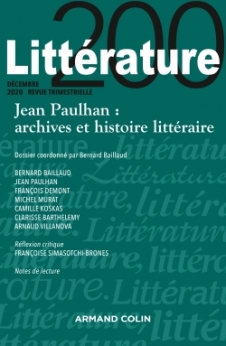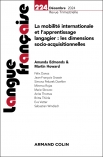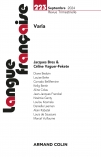
Littérature Nº200 (4/2020)
Pour acheter ce numéro, contactez-nous
Recevez les numéros de l'année en cours et accédez à l'intégralité des articles en ligne.
On s’intéresse ici à l’écriture de l’histoire haïtienne opérée par des écrivains franco-antillais (Césaire, Glissant, Placoly) qui se sont attachés aux héros de la Révolution haïtienne, Toussaint Louverture, Dessalines, Christophe 1er, alors qu’ils furent des tyrans ou des dictateurs. Branchées à l’hypothèse de l’existence d’une tradition de terreur dans la Caraïbe, catastrophe coloniale originaire métastasée dans l’imaginaire caribéen, ces écritures nègres héroïsent le despote émancipateur. Mais on constatera une mise en suspens de leurs aspirations face au régime de la dictature duvaliériste (Cazanove, Confiant). On examinera les interactions entre les enjeux politiques de ces écritures de la terreur nègre, les limites qui leur sont signifiées et les reconfigurations contemporaines qu’elles esquissent dans le champ littéraire antillais.
Our subject matter here is the writing of the Haitian history worked out by French Caribbean writers (Césaire, Glissant, Placoly) who showed a liking for the heroes of the Haitian Revolution, Toussaint Louverture, Dessalines, Christophe the first, when they were tyrants and dictators. Connected with the hypothesis that a tradition of terror existed in the Caribbean, a colonial original catastrophe metastasized within the Caribbean imaginary, those Negro writings turn these emancipatory despots into heroes. However, a suspension of their aspirations will be noticed in front of the regime of the Duvalier dictatorship (Cazanove, Confiant). The intersections between the political issues of these writings of the Negro terror, the limits that are notified to them and the reconfigurations they outline in the Caribbean literary field today will be examined.

